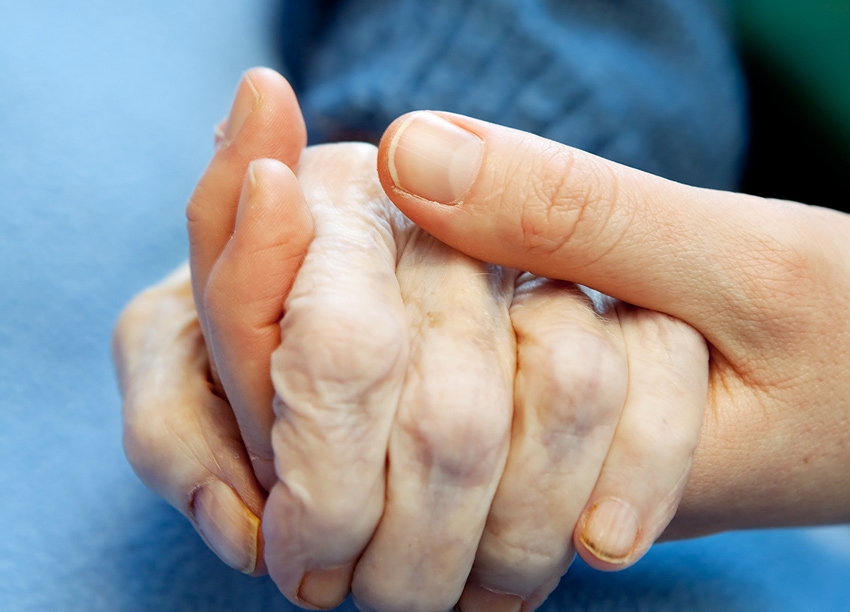News
Canada’s Medical Assistance in Dying Regulations Fall Short
Posted 2018-09-09

L’Arche Canada supports the Canadian Association for Community Living (CACL)) and the Council of Canadians with Disabilities (CCD) in urging the federal government to strengthen the system of monitoring Medical Assistance in Dying.
The Canadian Association for Community Living (CACL) and the Council of Canadians with Disabilities (CCD) strongly call on the federal government to strengthen the monitoring system for medical assistance in dying (MAiD). As they stand, the just-published MAiD regulations to come into effect November 1, won’t safeguard people who could be vulnerable under the system. They don’t meet the objectives of the MAiD legislation for robust protections. More work needs to be done.
We agree with the Globe and Mail editorial that Canada should have at least as many safeguards as the Oregon system for assisted death, in place since the late 1990s, and which requires that physicians collect information on what is motivating a person to request medical assistance in dying. It is not enough for a health practitioner to report vaguely that a patient has “intolerable suffering.”
We need to understand what causes that suffering, and as we know from the data in Oregon, there are many reasons – fear of burden on family, financial worries, a sense of loss of autonomy or dignity. In many cases, these factors could be addressed by the health care system and greater access to supports for patients and their caregivers. In addition, providing for voluntary reporting by patients or their representatives would help safeguard the system. The opportunity for patients to self-report their experiences and circumstances, in a manner respectful of their autonomy and privacy, would be invaluable in understanding why Canadians at the end of their lives feel they must access this system.
“Canada needs to ensure that the MAiD regime lives up to its promise of fairness and compassion. Unfortunately, we are already hearing cases of persons like Roger Foley who are being offered medical assistance in dying before they are offered assistance in living,” said Joy Bacon, President of CACL.
The regulations coming into effect November 1 do provide for collecting information on whether a patient has accessed or requested palliative care and disability supports. This kind of information is a good start in understanding why people request MAiD. However, the regulations do not explicitly obligate the government to report to Parliament and Canadians on this information. Without that, we simply don’t know whether people who needed and wanted this support, and didn’t get it, are having their lives terminated under MAiD.
Health Canada has acknowledged that it was encouraged in the consultation process to require medical practitioners to gather information on “socio-demographic” factors, like the Oregon system. However, it opted instead for merely collecting the patient's postal code. We believe this information should be enhanced to give a fuller picture of the social determinants of health affecting the specific individuals requesting MAiD.
The government’s newly minted regulations for MAiD monitoring, on balance, appear to meet the concerns of physicians who don’t want to spend too much time inquiring into why a person is experiencing intolerable suffering and asking to die. But they fail Canadians spectacularly. “The government’s unwillingness to gather robust evidence on the causes of intolerable suffering increases the likelihood of Canadians continuing to experience anguish at end of life. Not only is the government failing to carry out its due diligence towards vulnerable, dying Canadians by ignoring this vital opportunity to learn about the causes of their intolerable suffering, it is overlooking critical information that could point the way to improvements in end of life care,’ states Dr Heidi Janz, Chair of the CCD’s Ending-of-Life Ethics Committee.
Whether provided for in amended regulations or additional mechanisms, further safeguards are urgently needed to adequately monitor the practice of MAiD.
CACL is composed of ten provincial and three territorial associations, with over 400 local associations spread across the country and more than 40,000 members. CCD is a national human rights organization of people with disabilities working for an inclusive and accessible Canada.
Themes
- Accessibility
- Advocacy
- Aging
- Amitié
- Apprentissage
- Artist
- Assistant
- Assisted Dying
- Belonging
- Care
- Caring for Others
- Celebration
- Civic Engagement
- Collaboration
- Communication
- Community
- Contributions
- Core Members
- Creativity
- Daily Life
- Day Center
- Day Program
- Development
- Disability Arts
- Diversity
- Dying
- Education
- Forgiveness
- Gender Equality
- Gifts and Abilities
- Gratitude
- Growth
- Guideline
- Healing
- History
- Home
- Inclusion
- Institutions
- Intentional Community
- International Day
- L'Arche Scoop
- Leadership
- Legislation
- Life-sharing
- Listening
- Living with Disability
- Mission
- More Human Society
- Mutual Relationships
- Neighbourhood
- Outreach
- Partnership
- Peace
- Personal Journey
- Persons with Disabilities
- Policy
- Politics
- Project
- Reconciliation
- Resource
- Respect
- Responsibility
- Rights
- Service to Others
- Social Justice
- Society
- Solidarity
- Spiritual Journey
- Spirituality
- Story
- Sustainable Development
- Teamwork
- Togetherness
- Traditions
- Transformation
- Trauma
- Values
- Vision
- Vulnerable Persons
- Well-Being
- Workshop
- World